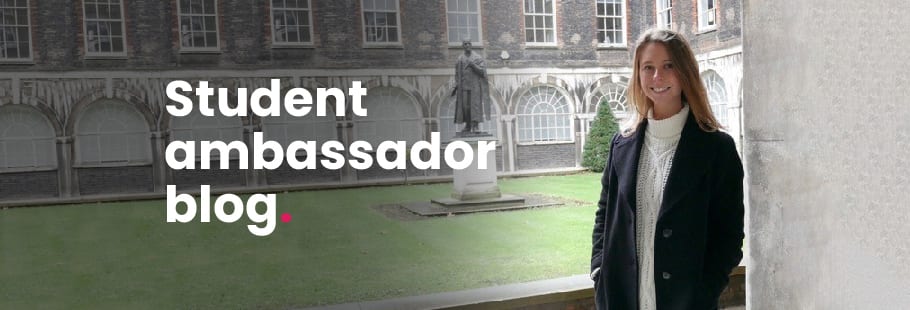Hey guys it's Maria here and today we're going to be talking about how to find your perfect PhD position. So going through how to sort out through the projects to find out which ones are the most interesting and relevant to you as well as how to branch out and potentially find a project that isn't even listed. So let's get started!
Step 1: identifying your core requirements Just like selecting your order from a food menu you need to have a rough idea on what you want your PhD to entail. Maybe you are extremely dedicated towards one area of research or want to pursue one specific technique or maybe you have identified several PhD programs you're interested in. Maybe more broadly you want to be located in one specific area of the world whatever it may be. Use these keywords as a starting point to whittle away all your options that are out there and start finding out what truly interests you. It's also very important to keep an open mind during this process. Think about how you could apply your previously obtained skills in a new manner.
You might find yourself completely surprised! Step 2: knowing exactly what the PhD project entails
So you have narrowed down your search to several projects that are standing out to you as something that may be of interest,
now the key is to understand exactly what the project outline is saying. As you read through it make sure you're able to answer questions such as: what is the overarching aim of this project? What are the specific methods outlined to conduct this line of work? And what materials will I be working with? Remember supervisors posting these PhD positions are equally trying to sell themselves to you as you shall be to them when sending in your application, hence at times the project outline shall gloss over some technicalities that may not be the most desirable.
If you find something the project outline is too vague about don't be afraid to reach out to the PI and inquire about it. Chances are they'll be more than happy to briefly discuss the project with you further and clarify any questions you may have.
Send a polite email expressing your interest in the project and asking your query as this is a brief email there is no need to attach your cv or list all of your qualifications, save that for the application. Importantly don't send this email the night before the app is due -
chances are you won't get an answer and shall be none the wiser on the project.
This is because PI's typically have very busy schedules and might not get back to you right away. If you don't receive a response wait a week and then send a gentle reminder if they still don't reply this might be an indication of the level of communication to expect from them. Which brings me on to my third point: do some background research on the PI Find out whether they are a novel PI or are already an established researcher in their area. API that has recently opened up their own lab shall have a smaller team which will require more work from you but shall provide a larger amount of supervision.
A PI with a larger team would provide you with an already established lab environment but might also mean that the PI won't be as involved in your project as they otherwise would.
It is also worth to look at the area of research they typically publish in and ask yourself: does your PhD project fall into this category directly or is it a branching idea they recently started working in or is it a completely different area? Working on a project that is related to other people's projects means that the techniques are already well established and it is easier to correlate data for publications however embarking on a research project that is slightly outside the scope of the PI's group may mean that you have more access to creative freedom, develop your own experimental design and identify previously unconsidered potential targets of interest. Step four: consider the opportunities that are not advertised. Now you may have looked through all of the advertised phd positions but still haven't found the one that's perfect for you this may seem frustrating and annoying but this is nothing to be disappointed about. If this is happening to you then potentially identify some universities that you think might be a good fit or the ones that you are interested in.
From there it's worthwhile to look through the faculty list to see if there are any individuals currently studying what you are interested in.
This is definitely a slightly longer and more painstaking process but the benefit is, is that you are likely to identify individuals working directly in your field of interest.
When you find them consider shooting them an email highlighting your interest in their research and ask them if there would be any chance at all for you to undertake a PhD position in their team.
Now this is going to be a slightly different email to the one you would have sent if you're inquiring about an already listed project. Here you can highlight your interest in their research as well as expand on your background and previous experience to explain why you would be a good addition to their team. If you want you can also attach your CV however I would not recommend asking for funding in the first email. It would be better to strike up a conversation and see what options may be available to you.
Hey guys I hope you enjoyed the video and found the tips useful. I just wanted to leave you with one thing. I wanted to talk about how when I was applying I felt immense stress to secure a PhD position within the months of November and December because everyone keeps saying this is when the projects are coming out and this is where the vast majority of all the possibilities are and when I hadn't secured anything by March and April I thought that was the end and this was no longer a viable option for me but then May rolled around and I found a project I was really passionate about and I applied and I got in thankfully. So this is just to say that possibilities are being released throughout the year and don't put all of this immense pressure on yourself and whatever you do, don't just start in panic applying to every single PhD position that you see because chances are if you're just randomly applying you won't have the specific interest in the project and you won't be able to make your application stand out because at the end of the day what really distinguishes for people for interviews is the passionate way that they do speak about the area of research that they're applying to. So I wish you guys the best of luck, don't be afraid to reach out to your PI's if you want to discuss projects further or see if they have any lab opening positions and take your time with your application and make sure that each application you send you would be truly happy doing that project there. Bye for now!

 Continue with Facebook
Continue with Facebook





